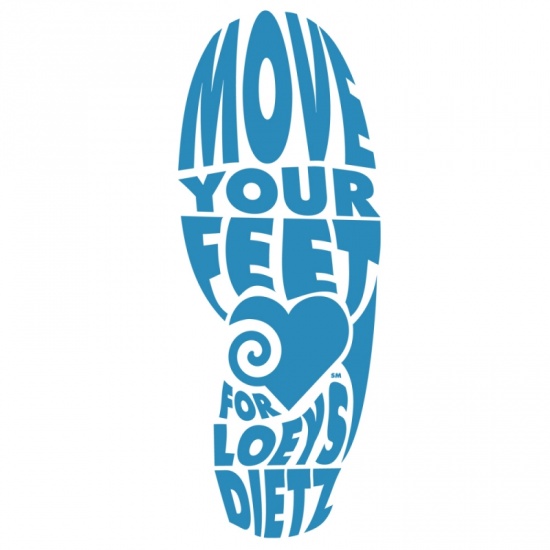Matters of Heart: February 2019
Community Groups
We are SO excited to launch our first Mid-Atlantic LDSF community event! Come together for some bowling, pizza, and most importantly, to meet other friends in the area with Loeys-Dietz syndrome. All ages are welcome!
For more information, check out the invite and RSVP.
Fundraising Thanks!!!
Move your feet for Loeys-Dietz
A huge thank you and shout out to the amazing Clingerman and Donohue crew running a Move Your Feet for Loeys-Dietz in honor/memory of the Ports family! Check out their story and fundraiser.
Baking my heart out for Caroline!
Thanks to the Dobson and Moore families for baking and to their friends and family for enjoying some yummy Valentine's Day goodies in honor of Caroline!
Want to let us know about your fundraiser, or interesting in doing one? Contact us at info@loeysdietz.org!
Medication Update
FDA warns about increased risk of ruptures or tears in the aorta with fluoroquinolone antibiotics in certain patients
A U.S. Food and Drug Administration (FDA) review found that fluoroquinolone antibiotics can increase the occurrence of rare but serious events of aortic dissections. They can occur with fluoroquinolones for systemic use given by mouth or through an injection.
Fluoroquinolones should not be used in patients at increased risk unless there are no other treatment options available. People at increased risk include those with a history of blockages or aneurysms of the aorta or other blood vessels, high blood pressure, certain genetic disorders that involve blood vessel changes (such as Loeys-Dietz syndrome) and the elderly.
Fluoroquinolone antibiotics are approved to treat certain bacterial infections and have been used for more than 30 years.
The LDS community should add this medication to the list of medications that should be discussed with your physician if prescribed in order to determine if there are safer alternatives. Other medications on this list would include:
1. Vasconstrictors (Triptans)
Triptans are a class of medications used to treat acute migraines after they have started. By stopping the migraine, acute medications help alleviate the symptoms of migraines such as pain, nausea, and sensitivity to light and sound.
Unlike other acute medications, triptans are considered selective serotonin receptor agonists, meaning that triptans work by stimulating serotonin, a neurotransmitter found in the brain, to reduce inflammation and constrict blood vessels, thereby stopping the headache or migraine.
Migraine sufferers should discuss the following with their physician before taking triptans:
Triptans should not be used by those who have a past history of, or risk factors, for heart disease, high blood pressure, high cholesterol, angina, peripheral vascular disease, impaired liver function, stroke or diabetes.
2. Decongestants (containing ephedrine or pseudoephedrine)
The way decongestants ease allergy congestion is by constricting the blood vessels, which helps to shrink swollen mucus membranes in the nose.This vasoconstriction can also occur throughout the body and can lead to an increase in blood pressure and/or heart rate. This can reduce the antihypertensive effects of blood pressure medications and lead to loss of blood pressure control.
Antihistamines are typically recommended for allergy relief.
Another loss to the LDS community
We continue to grieve over another dear family member's passing. This January, Alexa Lawrence passed away. At 14 years of age, she was creative and intelligent; she always had the wittiest of comebacks and sass for days.
Her mother, Sue, has been crucial on our BOD and in our conference success over the past few years.
Our hearts are breaking over another loss and our prayers, warmest thoughts, and biggest hugs go out to the Lawrence family.







